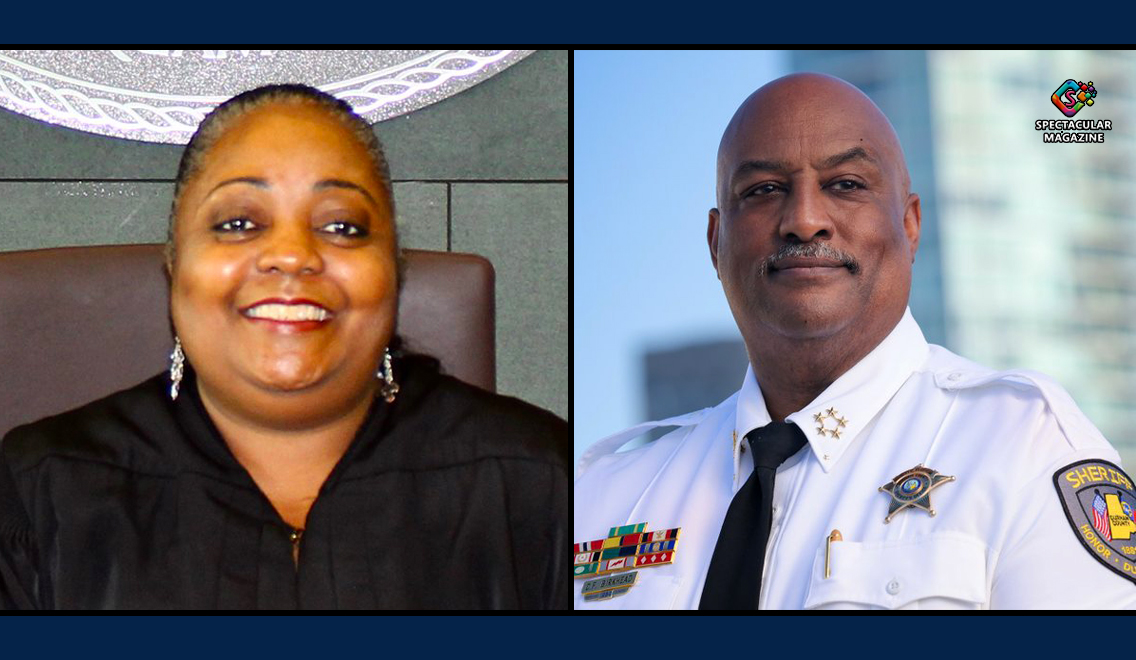Durham County Judge, Sheriff Sued Over Blocking Public Access to Juvenile Hearings
DURHAM, NC – A federal lawsuit filed against Durham County District Court Judge Doretta Walker and Sheriff Clarence Birkhead alleges systemic violations of public access to juvenile dependency hearings, sparking a debate over transparency in cases involving minors. The lawsuit, brought by the Civil Rights Corps, a D.C.-based nonprofit focused on injustices in the legal system, claims the pair repeatedly barred public access to proceedings that are protected under the First Amendment and North Carolina law.
Under the First Amendment of the U.S. Constitution and North Carolina state law, court hearings are automatically considered open to the public unless a motion is made to close the court and remove members of the public not involved in the case from the courtroom. But cases involving minors in Durham County often end up closed, removing potential supporters and advocates from the gallery.
The legal battle centers on the experiences of parents and advocates who say closed courtrooms have isolated families during critical moments. Among the plaintiffs is Durham resident Sharrocka Pettiford, whose seven children were removed by the Durham County Department of Social Services (DSS) in 2019. Pettiford, 37, claims she was left alone in court after supporters were removed, compounding the stress of a years-long custody fight.
“It’s as if you don’t matter,” Pettiford said, reflecting on her legal journey.
The Lawsuit and Allegations
The Civil Rights Corps says its attempts to observe Durham’s juvenile court proceedings were consistently denied. Court documents cite nine instances in 2023 and 2024 when members of the nonprofit were removed from Judge Walker’s courtroom.
“On CRC’s first attempt, on September 13, 2023, two CRC lawyers were immediately asked to identify themselves,” a memorandum written by the Civil Rights Corps supporting the complaint states. “After they did so, explaining they were lawyers who would abide by any confidentiality orders, they were ordered removed, and a Deputy Sheriff escorted them out of the courtroom.”
Two days later, the complaint states that Walker allegedly granted a blanket motion by a lawyer with the county’s Guardian ad Litem program to exclude all Civil Rights Corps lawyers from future proceedings.
“Others ‘with business before the court’ were permitted to stay, even if they had nothing to do with the case at bar,” the complaint says.
Durham DSS has argued that information in juvenile cases is inherently sensitive. However, the Civil Rights Corps counters that North Carolina law mandates public access unless compelling reasons for closure are presented.
“When sensitive information is discussed, there are legal alternatives to outright closing the courtroom, such as redacting transcripts or temporarily barring recording devices,” said Civil Rights Corps attorney Elizabeth Rossi.
The Impact on Families
The closures have profoundly affected parents like Pettiford and others, including mothers Bashirah McDaniel and Jatoia Potts. McDaniel spent nearly two years fighting to regain custody of her infant daughter, only to have her supporters repeatedly removed from hearings. Potts, who faced threats of contempt for bringing supporters, described the isolation as “scary and disempowering.”
Advocate Amanda Wallace founded the Durham-based Operation Stop CPS in 2021 after leaving her job as a social worker in Wake County. In the three years since, her advocacy has included comments at Durham County Board of Commissioners meetings and led to a win in the North Carolina Court of Appeals, which threw out a protective order the Durham County Department of Social Services sought against Wallace.
Wallace mentioned that she has been removed from juvenile dependency proceedings in Durham County at least 20 times. “Courtwatching helps to alleviate the shame and guilt that parents feel. It shows them they are not alone,” she said.
Wallace explained that she learned about the Civil Rights Corps’ work with parents separated from their children in other states and contacted the group regarding issues in Durham.
An investigation by The Assembly and WBTV in Charlotte in 2023 reported that Durham County had a 22% rate of reuniting children with their parents, less than half the 46% national average.
A Call for Change
The Civil Rights Corps is seeking a preliminary injunction to bar the closure of hearings that should be open to the public. The organization argues that maintaining public access ensures transparency and holds the system accountable for delays and separations that can prolong family reunification.
Though Walker is the one who orders a courtroom to close, Birkhead is being sued because he supervises the sheriff’s deputies who remove members of the public from the courtroom and keep it closed.
Judge Walker and Sheriff Birkhead have until January 13 to respond to the lawsuit.
“This case is about ensuring that justice is not hidden behind closed doors,” said Rossi. “The parents and children involved in these cases deserve fairness, transparency, and support.”
Neither Walker nor Birkhead responded to requests for comment.


